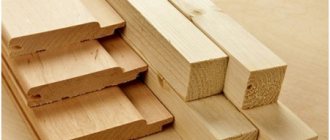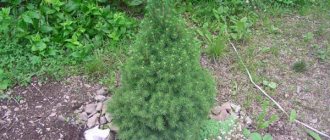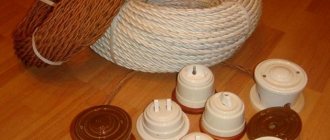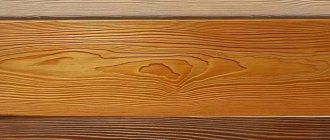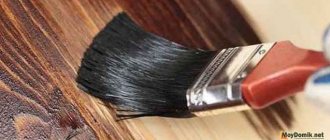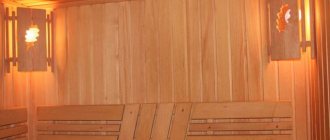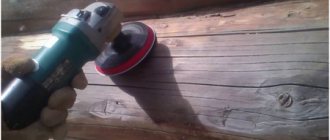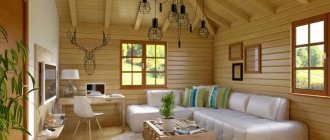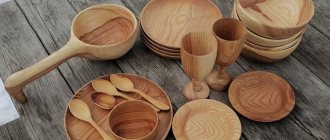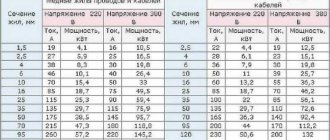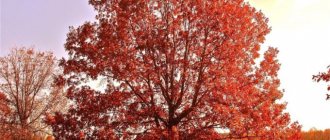One of the best options for exterior finishing is clapboard cladding on the outside of the house. Thanks to this material, your home will begin a new life, in a new appearance. Although it differs from the interior, such finishing will not only give the building a beautiful appearance, but will also improve sound and thermal insulation. But to carry out the work correctly, you need to know how to choose the right lining, and how the outer cladding is performed with lining.
Types of lining
First you need to study the varieties of this material. First of all, there are two types:
- Plastic. Helps create a high-quality coating that will last for many years because it does not corrode. It is also worth noting its high level of moisture resistance and low requirements for attention, i.e. no need for additional care.
- Wooden. It has quite a beautiful appearance. Good sound insulation qualities and low thermal conductivity are also noted.
Looking at wooden samples in more detail, we can distinguish two subtypes: regular and eurolining. This division is caused by the large abundance of imported material, provided that it differs significantly in quality and the types of wood used in production.
It should also be noted that foreign-made material is of higher quality and has a certain variety of geometric solutions.
Useful tips
In order for the wardrobe on the balcony to be of good quality, and for the lining doors to properly perform their functions and look decent, consider a number of requirements:
- Products made from lining should be placed only on a closed, glazed balcony, since the effects of precipitation have a detrimental effect on wood materials.
- Before installing the cabinet in the balcony niche, it is necessary to repair the flooring of the balcony. Pay special attention to the area where the lower base of the structure will be located. A level base will ensure rigidity of the installation, the doors will not “play” when closing/opening.
- To avoid the influence of temperature changes, carefully fill all the cracks on the balcony and provide high-quality insulation.
How to choose a lining
Speaking about the choice of material for clapboard cladding, you should pay attention to some factors that determine the quality of the product:
- First of all, when choosing wooden lining, it is humidity. This figure should not exceed 15%; if it is higher, then under the influence of the environment after some time a drying process will occur, this in turn will have a great impact on the appearance (cracks will form, deformation will occur and the exterior finish will be damaged).
- The next factor is the integrity of the material. Under no circumstances should you accept products with defects or any damage.
- Also, for wooden products, you need to pay attention to knots; their number should be minimal.
Important! It is recommended to use coniferous wood, since deciduous trees are not intended for use as exterior decoration for a house.
Benefits of coverage
Lining is actively used in suburban construction due to its multiple positive characteristics:
- has a long service life and does not change its original qualities;
- resistant to temperature changes and used in any climate zones;
- simultaneously provides additional thermal insulation of the premises;
- has an attractive appearance and makes it possible to use all kinds of design options;
- finishing does not require specialized and expensive tools;
- easy to install.
Exterior decoration of a house using lining helps transform the structure and hide technological shortcomings.
Exterior cladding of a house
The clapboard cladding process itself is divided into seven main stages, each of which is quite important, so the following can be distinguished:
- preparation of materials;
- vapor barrier device;
- preparation and installation of the frame;
- heat and waterproofing of the surface;
- installation of an additional frame;
- covering material.
Each of the points must be treated as responsibly as possible; any neglect can negatively affect the final result. But let’s move on directly to the work and consider each of the stages separately.
Preparation of materials
The first thing to start with is preparing materials for the work. Here is the minimum list of materials that will be needed:
- Vapor barrier. For its arrangement, foil, polyethylene or roofing material can be used.
- Wooden slats and boards. Will be needed for arranging the frame and fastening insulating materials.
- Mineral wool boards are most often used as thermal insulation.
- Waterproofing film.
- And lining for cladding.
The quantity of each material is calculated individually depending on the surface area of which the finishing will be carried out.
Stylistic directions
To decorate a gazebo, they use the same styles as for decorating residential buildings and apartments. The most popular destinations are:
- High tech. A modern trend, which is characterized by a strict color scheme (gray, white and black) and an abundance of metallized, glass, and plastic surfaces. A high-tech style gazebo looks like a separate living room for receiving distinguished guests. It is surrounded by artificial lighting, and a minimum of decor, modern appliances and expensive furniture will ensure comfort at a high level.
- Provence. One of the varieties of country style. Provence is characterized by the use of wood in decoration, old “grandmother’s” furniture and an abundance of greenery and decorative elements.
- Loft. A gazebo in this style is made of metal, wood or brick. The building must be decorated with a large number of artificial lighting sources. The furniture chosen is laconic but expensive. It will be combined in an original way with the general negligence in decoration.
- Classic. This luxurious destination turns a gazebo into a greenhouse. There is room in the building for trees and flowers in pots. The decor is complemented by antique furniture. Gazebos are made of stone or brick and decorated with forging.
- Eco style. For the construction of gazebos, only natural, environmentally friendly materials (wood) are chosen. The roof is often decorated with a “moss” carpet. The decor necessarily includes branches, stumps, wooden blocks, and saw cuts. An original solution would be to build a gazebo around a living tree. The trunk will become part of the interior composition.
- Sea style. Such a gazebo will remind you of a summer vacation. It is decorated with sand or small stones (pebbles), shells, and gear. The color scheme is dominated by a combination of shades of blue and yellow, which symbolize the sea and sand, respectively.
- Ethnics. This large group includes English, Italian, Spanish, Russian, and Japanese styles. Our native ethnic trend is embodied in wooden log cabins decorated with carvings. The decor is very laconic: a couple of benches, a massive table, a buffet. The floor is covered with homespun paths, and the main character of the composition will be a Russian samovar with a necklace made of bagels.
Vapor barrier device
Moving directly to the process, the vapor barrier device begins. As already mentioned, foil, polyethylene or roofing felt can serve as it.
The main tasks for which it is equipped include ventilation of the facade.
The device is carried out as follows:
- Wooden slats are provided, which are fixed vertically.
- The vapor barrier is directly attached to them.
- After fastening, ventilation holes are installed at the top and bottom of the covering.
Heat and waterproofing device
The next stage is the installation of insulating materials.
The first thing to do is attach the thermal insulation. For its arrangement, mineral wool slabs 5 centimeters thick are used. The insulation is laid in 2 layers so that there are no gaps between them. In this case, each layer must be equipped taking into account the displacement of the joints, i.e. Each slab of the second layer should lie centered on the joint of the first. Additional fastening is usually not required, since the material is sufficiently elastic and is able to adhere independently between the frame boards.
After this, the waterproofing material is attached. It uses a special film; it does not have the ability to hold back steam, but at the same time it does not allow moisture to pass through. Its fastening is carried out using a construction stapler. In this case, each piece of film is overlapped with the previous one by at least 5 centimeters and is additionally glued with tape.
Important! The structure of the film is double-sided, with one side being smooth and the other being rough. For the most efficient use, it is necessary to lay the smooth part towards the insulation, while the rough part will be turned towards the lining.
Soviet board versus eurolining
The concept of lining for external cladding is quite general.
Is it generally correct to call these boards clapboard? Where did this name come from?
Initially, wagons were lined with wood to protect the cargo from the sun and rain. Wood was the most affordable solution. Cheaper than metal. And wood protected better from the greenhouse effect.
At first these were ordinary boards secured with boards. To simplify installation and also eliminate gaps, tongue-and-groove locks appeared. As a result, the products successfully migrated from carriages to cladding work.
Abroad, finishing is carried out simply with profiled boards according to the DIN 68126/86 standard. They hardly know about the word lining. This European standard is stricter than the domestic GOST. Because of this, material manufactured according to the DIN standard is called Euro lining.
External lining according to GOST has a number of disadvantages. These are weak characteristics, questionable ease of installation, and humidity at 20-25%. Such products are often deformed. Plus, many external defects do not allow achieving the desired visual effect.
Eurolining wins in all respects. And this is a more than objective assessment.
Nowadays plastic lining is also available. Although these panels cannot be fully classified as this type of material. In the traditional sense, lining is products made from natural wood.
Exterior clapboard finishing
The time has come for the most significant and labor-intensive stage of work, and this is directly covering the house with clapboard on the outside. It is carried out as follows:
- The material is prepared and the boards are cut to the required size.
- The cladding process itself begins from the bottom, the first board is laid with the groove up. If there is no need for leveling, the material is fixed to the frame.
- Next, the next board is laid and driven into the groove with a hammer, after which additional fastening of the lining is also carried out.
- Further consolidation is carried out in the same way.
- When the fixing is completed, it is necessary to paint the surface, or cover it with a special solution.
This kind of impregnation will give the surface a more aesthetic appearance and make it resistant to external influences.
Important! If painting, the surface must be sanded first.
For some types of paint, for example, oil paint, it is necessary to pre-treat the surface; this is done by applying drying oil, preferably in 2 layers, and you will need to wait until it dries completely, and then continue working.
What work should be done beforehand?
Before carrying out construction work, each board and timber must be thoroughly treated with an antiseptic.
Processing of lining
Please note that many antiseptics contain a coloring pigment that will affect the decorative function of the lining. If you want to preserve the natural color of the wood, it is recommended to treat only the inner part of the material, and varnish the outer part after installation. If the facade is being prepared for painting, this does not matter and both sides can be treated with an antiseptic.
Let the lining dry thoroughly so as not to deteriorate its technical characteristics.
